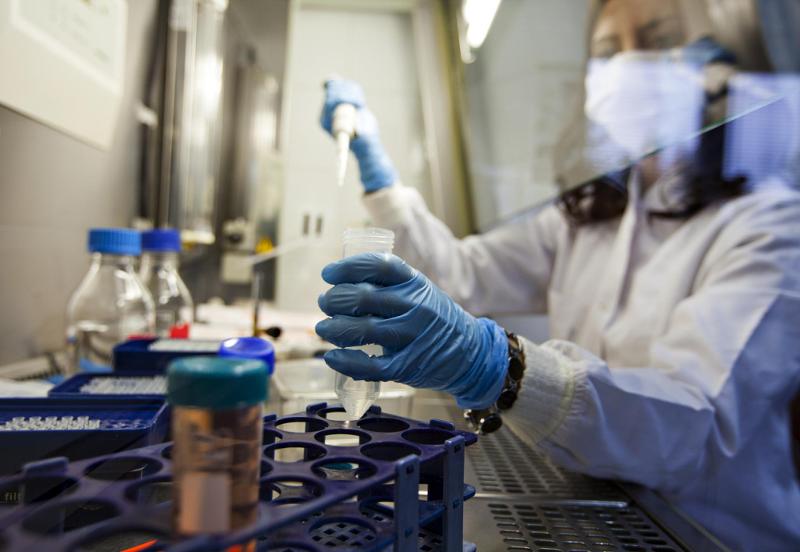Revolutionizing Stem Cell Manufacturing: The Future of Life-Saving Treatments
In the ever-evolving landscape of healthcare, digital advancements continue to reshape the way we approach medical treatments. Stem cell therapies, with their potential to treat a wide range of conditions, have long been hailed as a promising frontier. Now, thanks to recent developments in automation and machine learning, the future of stem cell manufacturing is looking brighter than ever. In this article, we will explore how these digital advancements are revolutionizing the field, providing patients with streamlined access to life-saving stem cell treatments.
Automation and Machine Learning: Transforming Stem Cell Manufacturing
Discover how automation and machine learning are revolutionizing the field of stem cell manufacturing, paving the way for streamlined access to life-saving treatments.
Traditionally, stem cell manufacturing has been a labor-intensive and expensive process, limiting the availability of life-saving treatments for patients in need. However, recent advancements in automation and machine learning have the potential to change the game entirely.
The groundbreaking CellQualia Intelligent Processing System, tested at the Medicines and Healthcare products Regulatory Agency (MHRA), has demonstrated the feasibility of automating stem cell manufacturing. This innovative system, developed in Japan, offers a glimpse into the future of streamlined and cost-effective production.
By harnessing the power of automation and machine learning, researchers and clinicians can scale up stem cell manufacturing, ensuring faster access to safe and affordable therapies. The potential impact on patients with conditions ranging from blindness to blood cancer and heart disease is immense.
The Role of the UK Stem Cell Bank in Advancing Research and Clinical Applications
Explore the significance of the UK Stem Cell Bank (UKSCB) in supporting research and clinical advances in the field of stem cell therapies.
Established 20 years ago, the UK Stem Cell Bank (UKSCB) has played a pivotal role in curating and providing high-quality stem cell lines for research and clinical applications. As the UKSCB celebrates its anniversary, it continues to drive innovation and collaboration in the field.
With its diverse and exciting future, the UKSCB is poised to support groundbreaking research and clinical trials both in the UK and around the world. By providing researchers and clinicians with access to well-characterized stem cell lines, the UKSCB accelerates the development of new therapies and treatments.
Through its commitment to safety and quality standards, the UKSCB ensures that stem cell therapies are reliable and effective. This enables patients to receive faster access to cost-effective and safer treatments, ultimately improving their quality of life.
Unlocking the Potential of Human Embryonic Stem Cells
Discover the immense value of human embryonic stem cells in treating a wide range of conditions and the challenges associated with their limited supply.
Human embryonic stem cells possess the remarkable ability to help the body repair and regenerate, offering hope for patients with various conditions and diseases. From blindness to blood cancer and heart disease, these cells hold immense therapeutic potential.
However, the manual manufacturing process for human embryonic stem cells is both labor-intensive and expensive. This limits their availability and hinders widespread adoption of stem cell therapies.
Automation and machine learning offer a solution to this challenge. By automating the manufacturing process, researchers and clinicians can scale up production, ensuring a more cost-effective and efficient supply of human embryonic stem cells. This breakthrough could revolutionize the field, providing patients with faster access to life-saving treatments.
Conclusion
Automation and machine learning are transforming the field of stem cell manufacturing, offering new possibilities for patients in need of life-saving treatments. The CellQualia Intelligent Processing System and the advancements made by the UK Stem Cell Bank have paved the way for streamlined access to safe and cost-effective therapies.
With the potential to treat a wide range of conditions, human embryonic stem cells hold immense therapeutic value. By automating the manufacturing process, we can overcome the limitations of manual production and ensure a more efficient supply of these cells.
As we look to the future, the convergence of technology and healthcare promises to revolutionize the field of stem cell therapies. By harnessing the power of automation, machine learning, and the expertise of organizations like the UK Stem Cell Bank, we can unlock the full potential of stem cell treatments and improve the lives of countless patients.
FQA
What is the significance of automation and machine learning in stem cell manufacturing?
Automation and machine learning have the potential to revolutionize stem cell manufacturing by streamlining the production process, making it more efficient and cost-effective. This allows for faster access to life-saving treatments for patients in need.
How does the UK Stem Cell Bank contribute to research and clinical advances?
The UK Stem Cell Bank plays a crucial role in supporting research and clinical advances by providing high-quality stem cell lines for scientists and clinicians. This accelerates the development of new therapies and treatments, ultimately benefiting patients worldwide.
What challenges are associated with human embryonic stem cell manufacturing?
The manual manufacturing process for human embryonic stem cells is labor-intensive and expensive, resulting in limited availability. This hinders widespread adoption of stem cell therapies. However, automation offers a solution by scaling up production and ensuring a more efficient supply.

